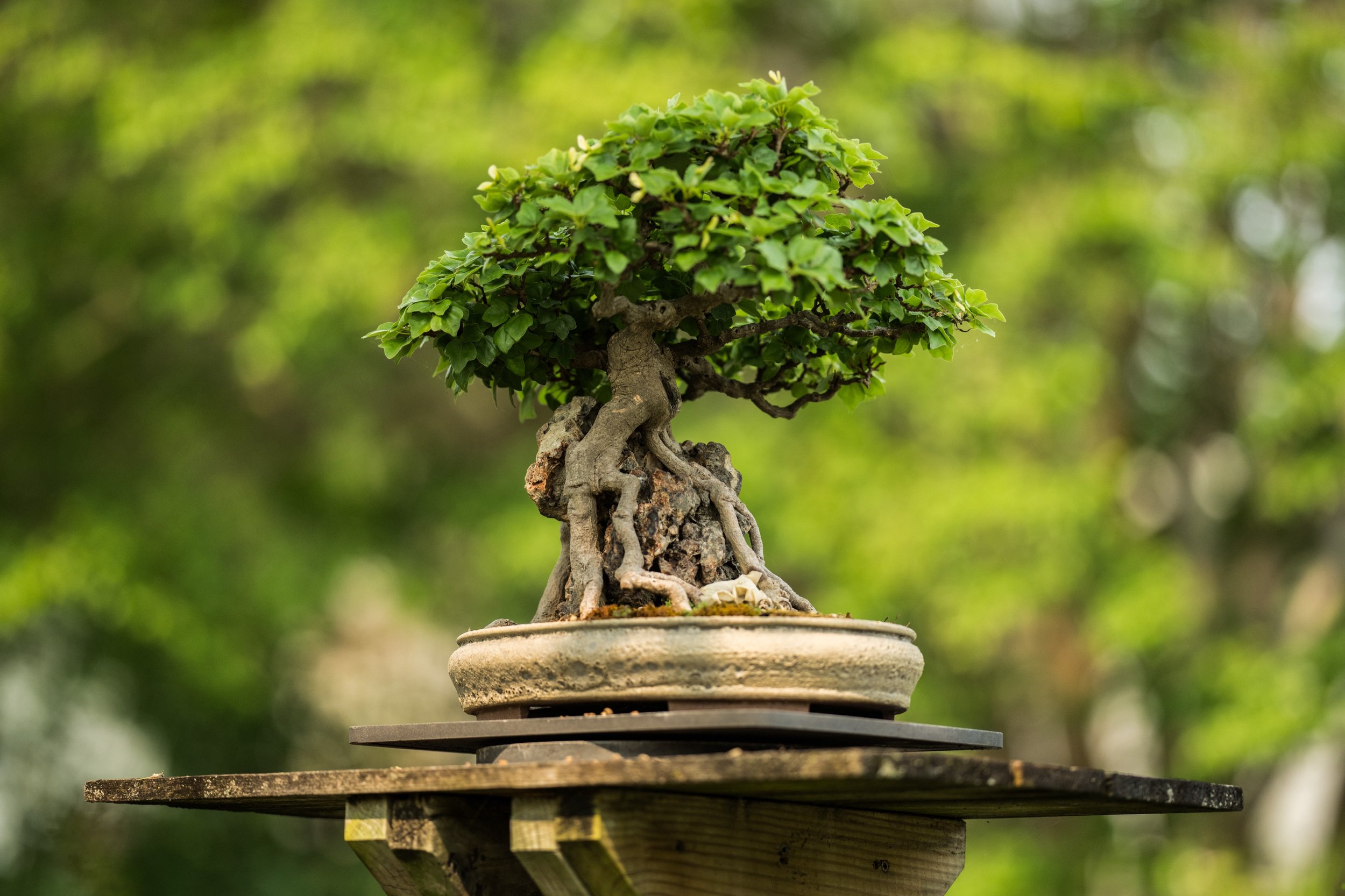When thinking of bonsai or penjing, one naturally imagines perfectly manicured trees. But in this month’s Historical Tree Spotlight, we’re shifting gears and taking a look instead at a unique stone presentation called “Spring Rain.” Museum curator Michael James says the rocky display exemplifies a fundamental difference between bonsai and penjing.
“Penjing, in the literal translation, is more of a theme or a landscape in a shallow container, whereas bonsai is really the minimalist, iconic tree we all know,” he said.
A gift from the Shanghai Botanical Garden to the Museum in 2006, “Spring Rain” is usually on display during the summer months in the Chinese Pavilion.
The penjing sits in a nearly five-foot tray crafted from white marble – a prolific resource used often in Southern China – which is meant to portray the surrounding sea. Its jutting landscape is a representation of a UNESCO World Heritage Site composed of a group of land masses protruding from Halong Bay in the South China sea.
Although “Spring Rain” represents a physical place on Earth, James said penjing are not always crafted to resemble real locations. The displays are often created as a poetic representation of an imaginary world or whimsical place.
“With some of the other penjing we have in the Museum, the trees are so curvy they don’t even look the way trees naturally grow,” he said. “But they do look like an amazing place to be if you were miniaturized in that setting.”
According to James, the small boats under the main rock signify another capital difference between bonsai and penjing. The tiny pewter or ceramic figurines are accents used in penjing to create a humanistic scale. James said the presence of greenery is minimal in penjing, and the lack of plants in “Spring Rain” speaks to the minimalistic approach of the art.
He added that penjing artists use a freeform “clip-and-grow” method, rather than training the trees with wire, to redirect the trees’ energy into the desired form.
“With penjing, artists and creators allow the tree to do more of what it does naturally,” James said.






